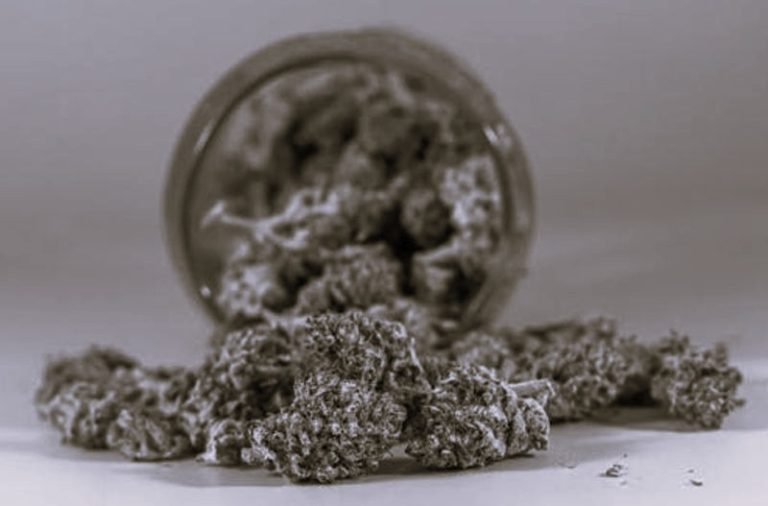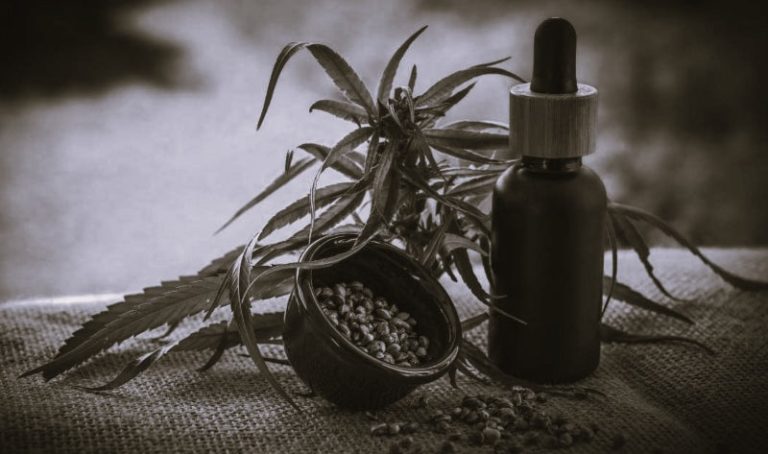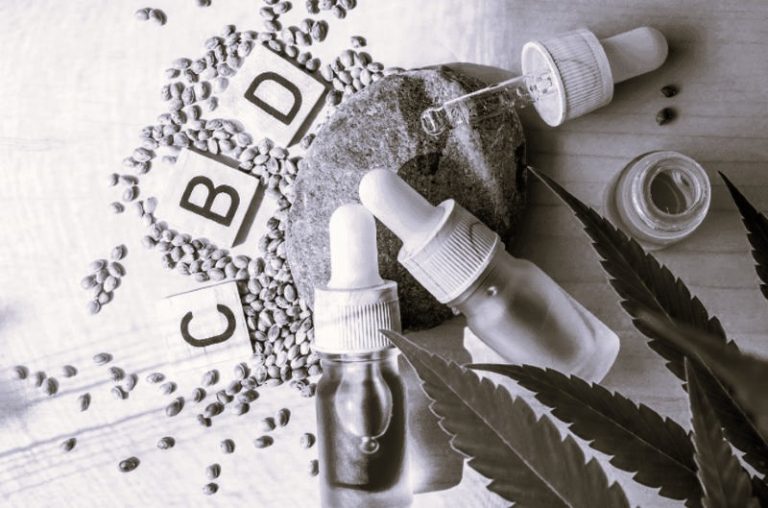
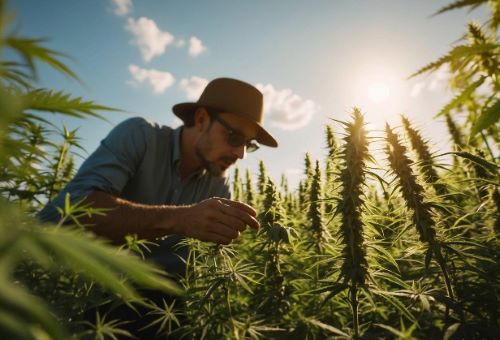
Cannabidiol (CBD) is a compound found in cannabis and hemp plants, which has garnered significant attention in the wellness industry. Unlike tetrahydrocannabinol (THC), the compound in cannabis responsible for the ‘high’, CBD is non-intoxicating. This characteristic makes CBD products at The Herb Centre an appealing option for individuals looking for potential therapeutic benefits without the psychoactive effects.
CBD products come in various forms, including oils, tinctures, gummies, and capsules, each offering a different method of consumption and bioavailability. Oils and tinctures, for example, are appreciated for their ease of use and the ability for users to control dosages. The products are widely marketed for their potential to manage a range of conditions, such as anxiety, stress, and pain, although research into their efficacy is ongoing.
It’s important for consumers to approach CBD with an informed perspective. Potential users should seek out products from reputable sources, ensuring that the hemp used is grown legally and that products contain the advertised amount of CBD. In Canada, where cannabis is legal for both medical and recreational use, consumers are encouraged to look for products that adhere to the country’s regulatory standards, prioritising safety and quality.
Understanding CBD and Its Sources
Cannabidiol, commonly known as CBD, is a prominent non-psychoactive compound extracted from the Cannabis sativa plant. It can be sourced from both hemp and marijuana, which impacts its legality and availability.
Hemp-Derived CBD vs. Marijuana-Derived CBD
Hemp-derived CBD:
- is extracted from hemp, a variety of the Cannabis sativa plant that contains less than 0.3% THC (tetrahydrocannabinol).
- is legal in many regions, including the United States and Canada, owing to its minimal THC content.
Marijuana-derived CBD:
- is derived from marijuana varieties of the Cannabis sativa plant, which have greater concentrations of THC.
- remains regulated in Canada under the Cannabis Act due to the potential psychoactive effects of THC.
Product Types:
- CBD Isolate: Pure, isolated CBD without other cannabinoids or THC.
- Full-Spectrum CBD: Products that contain CBD, THC, and other cannabinoids, potentially enhancing the therapeutic effects through the entourage effect.
- Broad-Spectrum CBD: Similar to full-spectrum but without detectable levels of THC.
The Endocannabinoid System and How CBD Works
The endocannabinoid system (ECS) is a biological system comprising endogenous cannabinoids, receptors, and enzymes, which regulates various physiological processes, including mood, pain sensation, and immune functions.
Interaction:
- CBD interacts with the ECS by modulating receptors and enhancing the body’s natural cannabinoids’ activity, offering potential health benefits without causing intoxication.
Types and Forms of CBD Products
The CBD market offers a diverse range of products suited for different preferences and uses. Here, one will find a comprehensive overview of the various types and forms of CBD products available.
Oils and Tinctures
CBD oils are liquid extracts that are typically consumed sublingually—placed under the tongue for absorption. They come in bottles with a dropper for easy dosage. Tinctures, while similar to oils, often include additional ingredients like herbs to enhance the product’s properties.
Edibles and Gummies
Edibles offer an approachable and discreet way to consume CBD. They include a wide array of products from gummies to chocolates. Each edible has a predetermined amount of CBD, ensuring consistent dosing.
Topicals: Creams, Lotions, and Salves
Topical CBD products are designed for external use and applied directly to the skin. Creams and lotions are commonly used for hydrating skin and can also address joint and muscle discomfort. Salves, with their thicker consistency, are geared towards localized relief.
Capsules and Pills
Capsules and pills provide an exact dosage of CBD and are preferred for their convenience and discretion. These are ingested orally and are a good option for those who want a no-fuss, portable method of taking CBD.
Vaping Products
Vaping offers a method of inhalation with quick onset of effects. Products include CBD vape pens and vaporizers. They provide a lung-friendly alternative to smoking, utilizing a heating element to vaporize CBD oil or concentrates.
Health Benefits and Potential Side Effects
CBD products, known for their therapeutic potential, are commonly used for pain relief, anxiety management, and sleep regulation. While they offer several health benefits, it’s important to be aware of possible side effects and ensure proper dosage.
Pain Management and Anti-Inflammatory Properties
Research suggests that cannabidiol (CBD) can alleviate muscle and joint pain due to its anti-inflammatory effects. Patients report reduced discomfort, pointing towards CBD’s role in pain management protocols. Continuous study is essential to fully understand the mechanisms by which CBD reduces inflammation.
CBD for Anxiety, Stress, and Mental Health
CBD has been recognized for its potential to improve mental health, specifically in reducing symptoms of anxiety and stress. It may exert a calming effect on the central nervous system, modulating mood and emotional response. However, dosage plays a crucial role in its efficacy and safety.
Sleep Disorders and Insomnia
For those struggling with sleep disorders and insomnia, CBD may offer benefits. Anecdotal evidence and some studies suggest that CBD can help regulate sleep patterns, although the exact dosage and long-term effects require further exploration.
Considering CBD for Arthritis and Joint Pain
Individuals with arthritis and joint pain have shown interest in CBD products like gummies and oils. They may find relief from persistent discomfort through CBD’s purported anti-inflammatory and analgesic properties. Proper medical consultation is advisable to determine appropriate use and avoid adverse reactions.It’s essential to mention that while many have experienced health benefits, side effects such as drowsiness, changes in appetite, or drug interactions are possible. Users should start with lower doses and consult healthcare providers to mitigate risks.
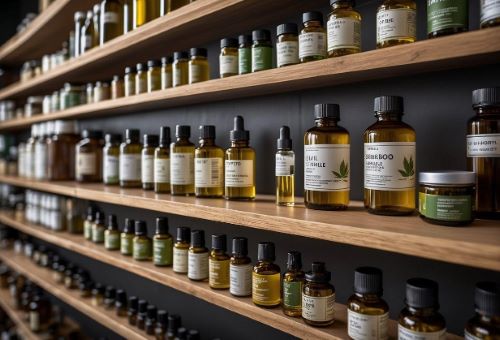
In navigating the complexities of CBD product selection, consumers must be vigilant about legality, product testing, and quality. Understanding the regulatory landscape and the importance of third-party testing can guide one in identifying CBD products that are both safe and effective.
Legal Considerations and State Laws
In Canada, cannabidiol (CBD) falls under the Cannabis Act, established in October 2018. This act ensures that CBD, despite not being intoxicating, is regulated similarly to other cannabis products. The production, distribution, and possession of CBD oil and other products are closely monitored by Health Canada. All phytocannabinoids are subject to these regulations.
Under the Cannabis Act, only adults above the provincially determined legal age have access to CBD products, which can be sold through provincially or territorially authorized retailers or federally licensed sellers. Any CBD product derived from the cannabis plant is controlled to ensure adherence to state laws and consistent consumer safety standards.
Importance of Third-Party Testing and COAs
Third-party testing is an essential aspect of affirming a CBD product’s potency and purity. A Certificate of Analysis (COA) accompanies reputable CBD products and stands as a testament to the thorough evaluation the product has undergone. It confirms the levels of CBD and tetrahydrocannabinol (THC), as well as screens for pesticides, heavy metals, and other contaminants.
The COA is imperative for consumers seeking assurance that a product not only meets regulatory standards set forth by the Controlled Substances Act and adheres to the provisions of the Farm Bill, but also upholds exacting quality benchmarks. Consumers are urged to prioritize products accompanied by COAs, verifying their adherence to the Food and Drug Administration (FDA) guidelines and ensuring they are free from potentially harmful contaminants.
Identifying High-Quality CBD Products
High-quality CBD products can be discerned through several indicators beyond the COA. Consumers should:
- Look for labels denoting the exact CBD content and a guarantee of low THC quantities, in accordance with the Controlled Substances Act.
- Assess the reputation of brands and retailers, verifying their standing with authorized bodies.
- Evaluate the extraction methods used, noting that CO2 and ethanol extraction are considered high standards in the industry.
Ensuring the absence of pesticides, heavy metals, and solvents is critical for safety and quality. Additionally, the legality of the product per state laws, especially concerning the levels of THC present, must be established to avoid legal repercussions and assure product integrity.
